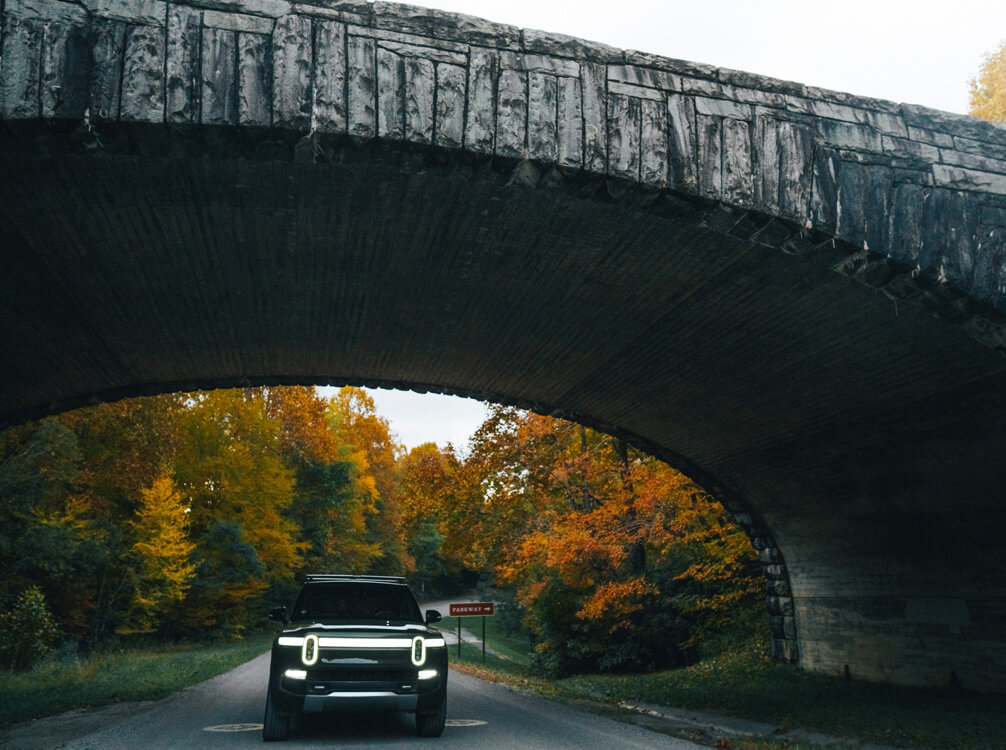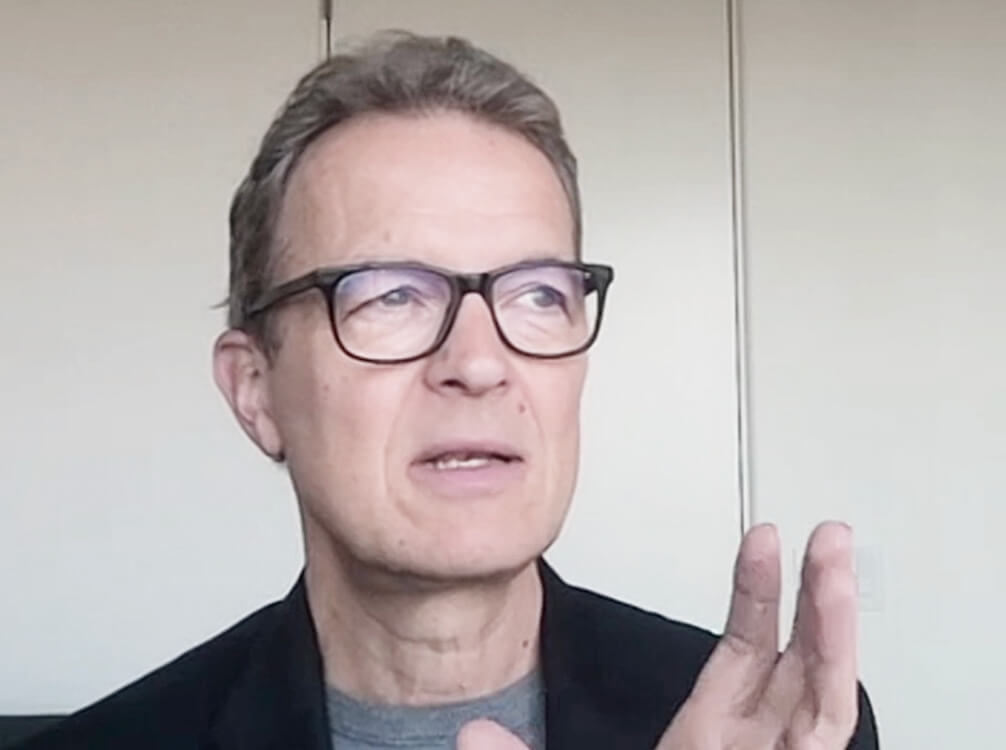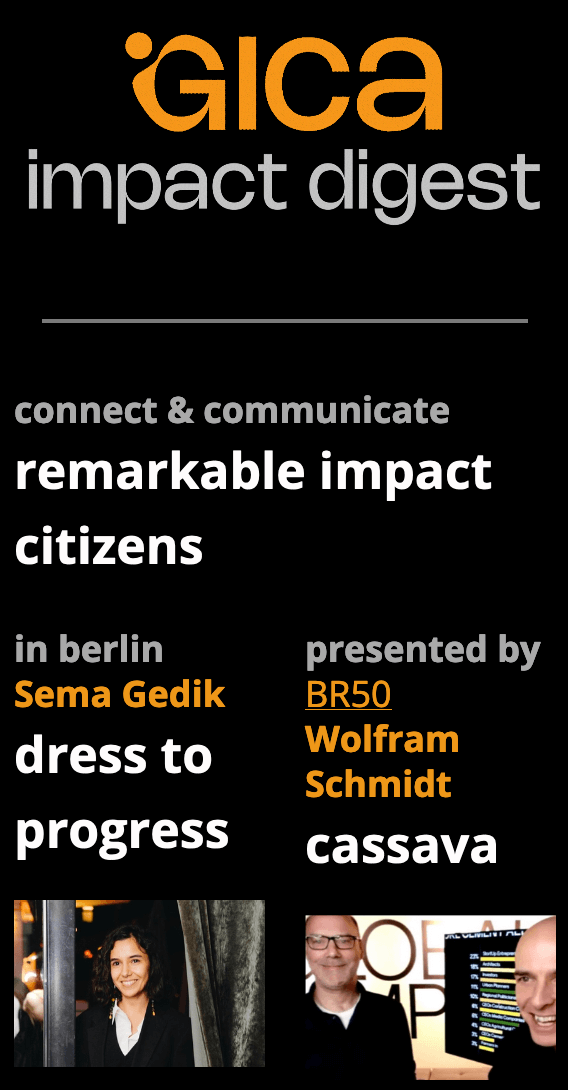GICA: You had everything. As the president of Porsche Cars North America, you had a bright future ahead. And you gave up everything to venture into an uncertain future. Why? What drove you?
Kjell Gruner: That’s something you do only if you have the right mindset. I am more of a “builder”. Someone who wants to create something, build something, and then later sit by the campfire with his grandchildren and tell them: “Hey, we did that. We moved to California. I started a new job at this startup, and from there, we conquered the world!”
GICA: Are you conquering the world now? Is that coming true, or did Rivian’s marketing pull you in?
It’s about connecting sustainability with maintaining or enhancing life’s joy.
Kjell Gruner: Oh, it was the fantastic product Rivian has. But it’s also a lot about the mission. Our mission statement is “to keep the world adventurous forever,” and “forever” has a lot to do with sustainability – with long-term thinking. It’s about connecting sustainability with maintaining or enhancing life’s joy. We aim for win-win, not win-lose, with the solutions we are developing. Anyone who has driven the R1 knows it’s a sensational product. I would say it’s the best SUV on the market. Period. It’s more than just the best electric SUV.
It’s essential to ask me: How do you combine both with the new technologies? To say you are sustainable that’s the “forever” part, but at the same time, “adventurous” to say you enjoy life; you can create moments you want to share with friends. That’s what it’s about. Are we conquering the world? I mean, you have to start somewhere. We are, of course, at the beginning, although we are already quite far. After all, we have developed vehicles and technologies, we produce, we sell them. We are currently in North America and a bit in Germany. But there’s still a lot to do. But the real reason was to build something entirely new here, something fun and, at the same time, sustainable.
GICA: You represent a whole, fast-growing scene. People who want to solve global problems with entrepreneurial dynamics – all under the umbrella of “Impact.” Is there a particular mindset of impact entrepreneurs?
Having the energy and the courage to say, “Let’s do this now!” is the foundation of everything, especially as an impact entrepreneur.
Kjell Gruner: First, energy is essential, as with everything in life. You can only make things happen if the right energy is there. Rivian is a founder-led company. RJ Scaringe, our CEO, founded the company and was Employee No. 1 himself. To impact society, he said, “I’m going to start a car company.” Just imagine that. When you talk to him, you can feel this energy.
Now, regardless of the industry or technology, he had nothing. Having the energy and the courage to say, “Let’s do this now!” is the foundation of everything, especially as an impact entrepreneur. Of course, you also have to be able to deal with setbacks and make changes along the way. RJ started and first wanted to build a hybrid sports car (because he’s a sports car fan). Eventually, he moved to pure electric vehicles.
Then, the question was: How can we have the most significant impact?
This is why now Rivian is building SUVs and pickup trucks, not sports cars. Because that’s simply the largest market segment. An electric sports car is also a great product, but the market is small. With SUVs and trucks, we can have the most significant impact.
GICA: Until recently, the Impact economy was a hobby. Today, you are still one of the underdogs in the automotive industry because, from Volkswagen’s perspective, it’s child’s play. Most impact companies are the underdogs in their industry. How do you deal with that?

“How can I trigger real change in the fastest way?” Kjell Gruner
Kjell Gruner: I change the perspective. The question is: how can I trigger real change the fastest way? With Rivian, we are starting from scratch, and if we go from zero to a specific market size, even if it’s only 1%, we have grown immensely. We have brought together many people, built teams, and changed culture. That would be my perspective. You have to start somewhere and then think about exponential growth. I would rather say, “Hey, there’s nothing here yet; let’s build it,” than say, “Everything here is already so big; how do I get there?”
GICA: So not to say, “We are the underdogs,” but rather, “We are the pioneers,” and those are always fewer.
Kjell Gruner: Yes. We are the first.
GICA: Do you have the pioneering courage, or have you just attached yourself to people with courage? Tricky question, I know.
Kjell Gruner:
Oh, courage! There are multiple perspectives on that. If you have nothing to lose, it’s easier to be brave.
GICA: You had nothing to lose?
Kjell Gruner: I had a great job in a great company. From that perspective, I had much to lose, including reputation and trust within the company and the industry. From that perspective, I was brave. It was also interesting how many people said, “I think that’s great. That’s courageous.”
GICA: How long were you at Porsche?
Kjell Gruner: I was there for a total of 19 years.
GICA: Leaving the familiar village was a social risk, not a financial one. That’s the social courage you showed. That’s something GICA wants to tell people from the old economy. “Hey, you established ones, be brave! Leap!” By the way,

What is your message to the German economy?
Kjell Gruner:
Be courageous and find joy in innovation!
GICA: So, back to the energy of Ferdinand Porsche?
Kjell Gruner: Yes. And also become a bit more relaxed and uncomplicated. The two most important German words are “Yes, but…” – emphasizing the “but.” Sometimes, that’s good. For example, when you want to manufacture a car, wonder, “What happens if we drive at 140 mph on the highway and a tire bursts?” In some industries, “yes, but…” is a good perspective. When you want to build a machine or a car, it’s essential to consider all that could go wrong. That leads to the perfect product. That’s why we are very good at mechanical engineering in Germany. But if the technical “yes, but…”-mindset becomes an overall culture, it hinders innovation. Therefore, I think
it’s about moving from “Yes, but…” to “Yes, and…”
GICA: Well said.
Kjell Gruner: It has to start with language. I have gotten rid of saying “but…” I don’t say “Yes, but…” in meetings anymore; I say “Yes, and…” Suddenly, you change the entire conversation.
GICA: What forecast do you give the entire Impact economy?
Kjell Gruner: It won’t be a linear path; it comes in waves. Ultimately, it’s a rising wave. You shouldn’t be too irritated about setbacks. Long-term perspective and vision are essential.
GICA: When is the tipping point of this sustainable economy thing coming? In 5 or 10 years?

Kjell Gruner:
I don’t believe in the tipping point that much. You might think something suddenly clicks, but there are many clicks. Customers make daily purchasing decisions, from organic vegetables over sustainably produced sweaters to electricity contracts without fossil energy and electric vehicles. It will be more of a gradual transition, different in each industry. You don’t have to wait for a huge tipping point. A small decision is often enough: one today, another tomorrow. Start there, and you have a whole movement.
GICA: You made my day. That’s why we’re building this network to trigger these minor tipping points in every conceivable corner of every industry. We want to support and connect people with good ideas and bring them together to exchange experiences with others. That’s why we are doing this. Because we won’t achieve it with one industry but with many small ones. That’s why we need this network. Thank you for your time.
Kjell Gruner: Thank you for your great initiative!
Find Kjell Gruner on LinkedIn
A BIG THANK YOU TO THE PHOTOGRAPHERS:



